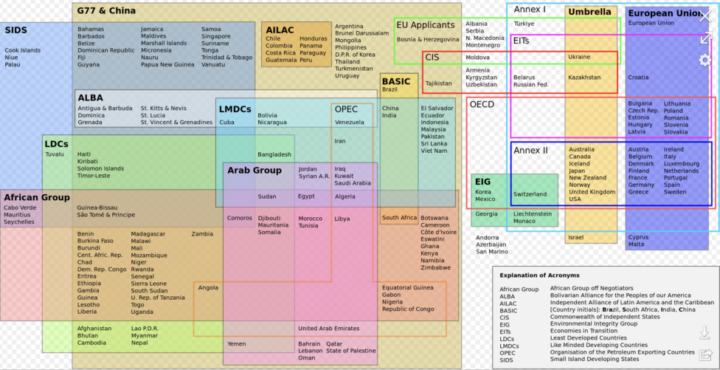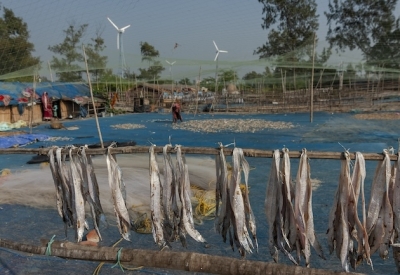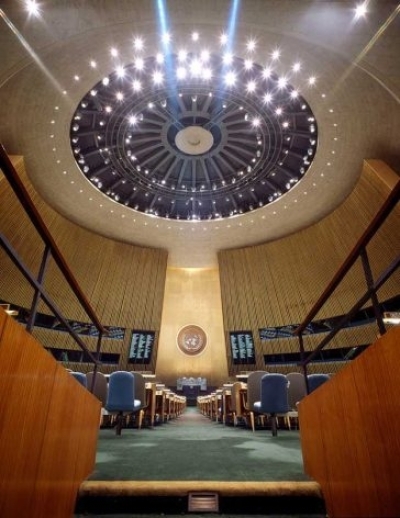Throughout 2023, Latin America has suffered heat waves, long, intense droughts, destructive floods and devastating hurricanes — phenomena related to the effects of a climate crisis derived mostly from the burning of fossil fuels.
Against this backdrop, the region will attend the 28th Conference of the Parties (COP28) to the United Nations Framework Convention on Climate Change (UNFCCC), to be held Nov. 30-Dec. 12 in Dubai in the United Arab Emirates. The region is bringing inadequate climate plans to address these phenomena and, at the same time, will voice demands for the international community to combat them.
Miriam García, associate director of Policy Engagement at the non-governmental CDP Latin America, said the mitigation plans are not adequate.
COP28 "should define a collective and quantifiable financing goal. To meet the NDC (Nationally Determined Contribution) targets, six trillion dollars are needed," she told IPS from São Paulo.
As in most of the world, the voluntary NDC climate targets undertaken by Latin America are inadequate or insufficient.
Although most of the region’s nations have plans to reduce greenhouse gas (GHG) emissions, adapt to the aftermath of the climate emergency and promote renewable energy, they are still tied to the use of oil and gas, which means they fall short when it comes to meeting the challenge.
In the case of Mexico and Argentina, the international platform Climate Action Tracker described their NDCs and mitigation and adaptation measures as "critically insufficient".
It ranked the plans of Brazil, Chile and Colombia as "insufficient".
The NDCs are a core part of the Paris Agreement on climate change, adopted in 2015 and in force since 2021, aimed at limiting the global temperature increase to 1.5 degrees Celsius, considered the minimum indispensable rise to avoid irreversible climate catastrophes and in consequence human disasters.
In the NDCs, nations must establish their 2030 and 2050 GHG emissions reduction targets, taking as a baseline a specific year; a path to achieve those targets; the peak year of their emissions and when they would achieve net zero emissions, absorbing as many gases as they release into the atmosphere.
Road to disaster
Overall, the Latin American NDCs, which contain net-zero emissions targets (with the exception of Mexico), would lead to global warming of between 2°C and 4°C, resulting in higher emissions.
By that count, GHG emissions from Mexico, the second largest polluter in the region after Brazil, would amount to between 807 million and 831 million tons of carbon dioxide (CO2), the gas generated by burning fossil fuels and the main cause of the rise in global temperatures, in 2030, without including emissions from land use change, deforestation and forestry.
In the case of Argentina, its emissions, without counting forestry, are projected to grow to 398 million tons of CO2 in 2030, approximately 25 percent above 2010 levels.
Meanwhile, Brazil’s pollutant emissions would reach 1145-1171 million tons in 2030, between 25 and 28 percent above 2005 levels.
Chile would be the only case where greenhouse gases would fall by 13-18 percent compared to 2021, to between 87 million and 104 million tons in 2030. Finally, Colombia would release 199-203 million tons into the atmosphere, 41-44 percent more than in 2010.
Since 2022, 38 countries, including Bolivia, Brazil, El Salvador, Guatemala, Mexico and Uruguay, have submitted an update of their NDCs to the UNFCCC Secretariat, while 157 countries have not revised their targets. Eight countries, including Mexico, have set less ambitious targets.
The State of Climate Action 2023 report, produced by several international climate monitoring organizations, found that progress has only been made in the deployment of electric vehicles, one of 42 indicators, leaving the planet far short of the Paris Agreement’s 1.5 degree Celsius temperature rise goal.

Suitcase of wishes
In this contradictory panorama of inadequate policies, unmet goals and financial and technological needs, Latin America is coming to COP28 with a variety of positions.
At the 23rd Meeting of the Forum of Ministers of the Environment of Latin America and the Caribbean, which took place Oct. 24-26 in Panama, the delegations agreed to support the transformation of the international financial system, food for the "loss and damage fund", the progressive reduction of fossil fuel subsidies, a gender focus and the promotion of renewable energy.
Some of these proposals contained in the final declaration are in line with the priorities chosen by the Emirati presidency of COP28, such as accelerating the energy transition to triple the installed capacity of renewable energy to 11 terawatts (11 trillion watts).
They also agreed to double global annual average energy efficiency by 2030 and to curb methane emissions, which have increased over the past five years and have a greater heat-trapping capacity than CO2.
In addition, COP28 will discuss voluntary commitments on hydrogen adoption, green public procurement from sectors that emit the most pollution, such as the steel industry, the Emirates’ declarations on sustainable agriculture, resilient food systems and climate action and on climate and health.
Pilar Bueno, an academic at Argentina’s National University of Rosario, said Latin America has a substantive role to play in climate negotiations.
"There is a very powerful agenda. The key is seeking uniform positions in the global South in terms of mitigation-adaptation-loss and damage," she told IPS from Buenos Aires, where she is also a researcher with the government’s National Scientific and Technical Research Council.
Adaptation actions and the scheme to address losses and damage from the effects of the climate crisis are the biggest differences between industrial and developing countries, because those in the South are demanding that the rich North, which has historically created more pollution, foot most of the bill.
The countries of the industrialized North appear to have met three years late the goal of contributing 100 billion dollars per year to the climate fight, which raises concerns about new commitments.
On other issues there are discordant positions within the groups that operate in the negotiations of the governmental delegations at the COPs, according to their specific interests.
For example, the Environmental Integrity Group (EIG), of which Mexico is a member, does not support the abandonment of fossil fuels or coal, one of the hot topics in Dubai.
On the other hand, the High Ambition Coalition (HAC), to which 12 Latin American countries belong, considers "high priority" the elimination of inefficient fossil fuel subsidies, the doubling of financing for adaptation, the alignment of NDCs to meet the 1.5 degree target in 2035, peak emissions in 2025 and financial flows that follow the guidelines of the Paris Agreement.
HAC also maintains that the phasing out of fossil fuels and coal, the tripling of renewable energy capacity and improvements in energy efficiency are key.
Meanwhile, the Independent Association of Latin America and the Caribbean (AILAC), made up of eight nations, prioritizes guidelines for fossil fuel phase-out and loss and damage assessment, as well as a mechanism for monitoring accountability regarding commitments.
Finally, the Like-Minded Group, to which six Latin American countries belong, says a high priority is for industrialized countries to achieve the goal of zero carbon and to pay increasing attention to adaptation measures.
María Paz, executive president of the Peruvian non-governmental organization Libélula, said it is imperative for the region to accelerate the implementation of measures.
"We must focus on a roadmap, to know where to go, the stops and the path to those goals. There is a lack of ambition and implementation. We are way behind," she told IPS from Lima.






